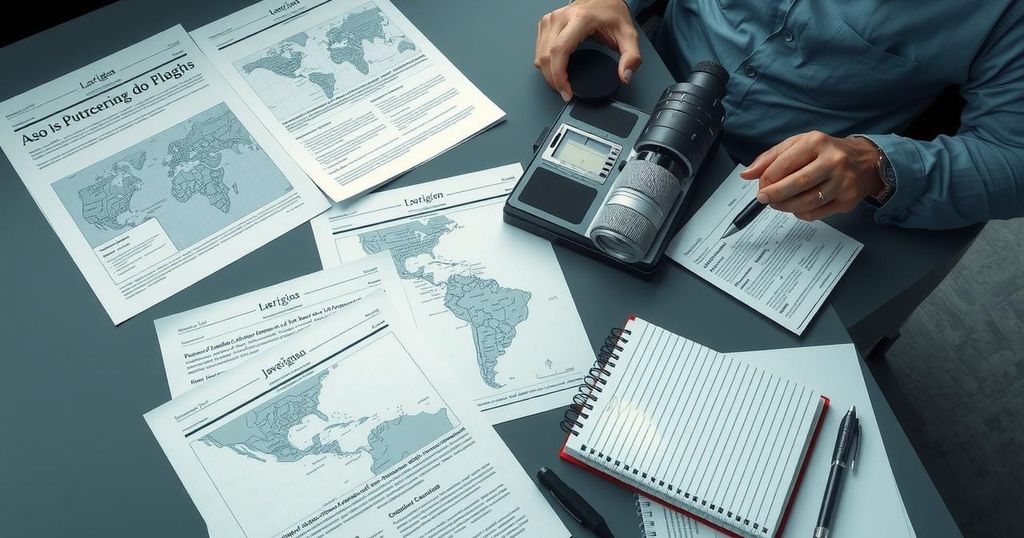Investigation Reveals Lack of Evidence on Venezuelans Tied to Tren de Aragua

A New York Times investigation disputes claims by President Trump that 238 deported Venezuelan men were linked to the Tren de Aragua gang. Only a small fraction had any connection, and the methods used to identify gang members are questionable. The situation remains legally complex as the deportees fight their circumstances in Salvadoran prisons.
In March, under the Alien Enemies Act of 1798, President Trump expedited the deportation of 238 Venezuelan men, claiming that many were affiliated with the Tren de Aragua, a notorious transnational criminal organization. However, a thorough investigation by the New York Times has revealed a lack of evidence connecting a significant number of these men to the gang, prompting many questions about the administration’s claims.
The investigation’s lead reporter, Julie Turkewitz, elaborated on the research process. “We spent weeks pulling records across several countries, including the U.S., Venezuela, and others in South America. From the group deported on March 15, only 32 had serious criminal records, and just a few seemed to have any real links to Tren de Aragua,” she said. This finding stands in stark contrast to the claims made to justify their swift deportation.
Moreover, Turkewitz explained how law enforcement categorizes individuals thought to be associated with Tren de Aragua. According to court documents, the Trump administration created a grading system where points are awarded based on physical characteristics and behaviors. For example, tattoos viewed as connected to the gang could count for four points, and specific styles of clothing could net an additional four. This arbitrary point system has drawn criticism from experts, who argue that it does not reflect actual indicators of gang membership.
A case that caught Turkewitz’s attention is that of Arturo Suarez Trejo, a man who attempted to provide for his family through honest work. He left Chile, where he was living and working, after hearing about potential job opportunities in the United States. Upon arriving and applying for asylum, he found himself caught in an ICE raid while filming a music video. His disappearance shocked his family, who later discovered him in a video showing him in distress in a Salvadoran prison, despite no criminal history or gang affiliation.
The situation is complicated further by El Salvador’s President Nayib Bukele, who has expressed a desire for more proof of the deportees’ links to Tren de Aragua. The future for these individuals remains uncertain, with Bukele stating that their prison terms would last at least a year, but could be renewable based on circumstances. This approach raises significant ethical and legal questions, especially as deportees continue fighting their cases in court. Secretary of Homeland Security Kristi Noem has also weighed in, suggesting these men should remain incarcerated in El Salvador for life—though this is currently being contested and awaits judicial review.
While the New York Times investigation sheds light on the fraught situation surrounding these deportations, it also raises important concerns about the accuracy of governmental claims regarding immigration and national security.
In short, this investigation highlights serious flaws in the claims that served to justify the aggressive deportation of Venezuelan men, particularly the lack of evidence linking them to the Tren de Aragua. The situation illuminates the dire consequences of administration policies and their broad implications within the immigrant community.
In conclusion, the New York Times investigation reveals the discrepancy between the Trump administration’s claims about deported Venezuelans and the actual evidence supporting those claims. It raises serious questions about the criteria used to categorize individuals as gang members, and the ongoing uncertainty regarding the fates of those deported sheds light on broader immigration issues in the United States. As legal battles continue, the ethical dimensions of such policies will likely remain a focal point of discussion.
Original Source: www.pbs.org








